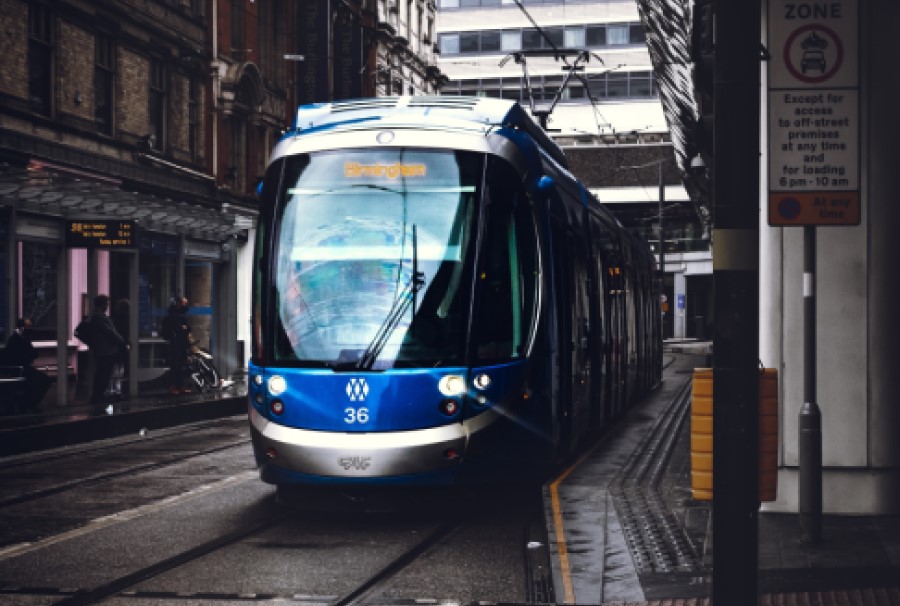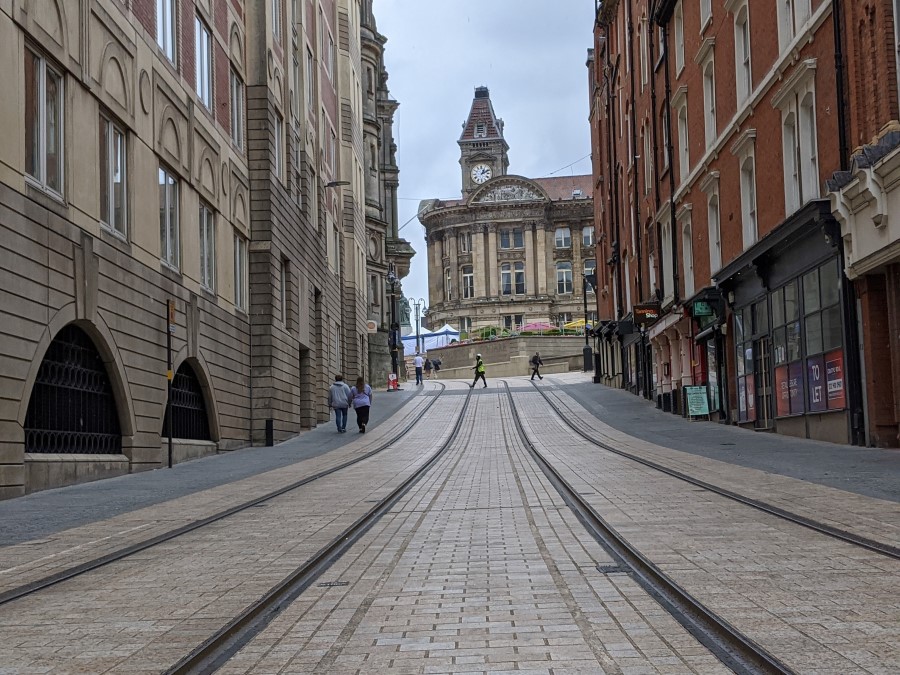
Peter Cushing discusses the extension of the West Midlands Metro network and the impact this will have on the region.
This blog post was produced for inclusion in the Birmingham Economic Review for 2021.
The annual Birmingham Economic Review is produced by the University of Birmingham’s City-REDI and the Greater Birmingham Chambers of Commerce. It is an in-depth exploration of the economy of England’s second city and a high-quality resource for informing research, policy and investment decisions.
This post is featured in Chapter 4 of the Birmingham Economic Review for 2021, Connected Places: Foundations for Growth
Click here to read the Review.
Despite the challenges caused by the ongoing Covid-19 pandemic, the Midlands Metro Alliance’s dedicated team remained committed to helping deliver Transport for West Midlands’ ambitious plan to improve public transport across the region. My colleagues recognise that central to this plan is the extension of the West Midlands Metro network with our new lines in Wolverhampton, Sandwell, Dudley and both the east and west of Birmingham city centre.
My team is made up of talented representatives of the West Midlands Combined Authority, which owns the West Midlands Metro, the design consortium of Egis, Tony Gee and Pell Frischmann, and rail construction specialists Colas Rail (supported by their sub alliance partners Colas Limited, Barhale, Bouygues UK and Auctus Management Group). This group of construction experts and design specialists first came together to transform the region more than five years ago in the summer of 2016.
In spite of Covid-19 continuing to see national restrictions and lockdowns for some sectors, 2021 saw considerable activity on all four of our projects across Birmingham and the Black Country and I am proud that passenger services are set to launch on two of the new routes before the end of the year. This will mean that passengers will be able to travel from Wolverhampton – including from a second terminus at the city’s new railway station – to Edgbaston Village, providing new links to some of the region’s popular tourist attractions whilst also helping to connect people to jobs across the West Midlands.

A key aim of our expansion projects has always been to boost regeneration through linking the region’s key centres of population – a strategy that is now ever more important in light of the economic impact of coronavirus, with associated employment and supply chain benefits helping to recharge the region’s economy as it prepares to bounce back.
The pandemic has undoubtedly had an impact on our operations but, as I’ve already mentioned, construction has continued since March 2020 with industry guidance implemented to ensure the safety and wellbeing of both the teams on-site across the Midlands and the general public.
A catalyst for the region’s development
There are more than 150 people working with me on the expansion programme and they all bring with them a considerable amount of light-rail experience to a £1.3bn programme.
If you look at what’s happened in Manchester as their light rail network expanded, the subsequent increase in ridership brought significant wider economic benefits. The West Midlands Metro extensions will be a real catalyst for the region’s development and help the area build back from the impact of the global pandemic. We’d be delighted if the West Midlands went on the same journey and we’re all convinced it will. There’s fantastic investment underway across both the Black Country and Birmingham that will really connect the region like never before and we firmly believe the whole Metro project will become a crucial part of the area’s public transport network.

Benefiting locals now, and not just after delivery
I really believe that our extensions will play a key part in recharging the region’s economy as it continues to recover from the impact of Covid-19. But even before we first heard of the pandemic, giving back has always been a key part of the alliance’s ethos, from employing local people, training them in order that they can develop their skills for future extensions to nurturing connections with suppliers.
The Midlands is the perfect place to source many of the materials and services needed for extensions to the West Midlands Metro, from steel fabricators to quarries, to the recruitment of staff. The continuation of construction during the pandemic allowed us to continue to support suppliers at a crucial time for them as we required their materials and services to reach key milestones including the largest, continuous concrete pour on the Birmingham Westside Metro extension. With this piece of work, in particular, a local concrete supplier saw considerable activity in its West Midlands plants, and our acceleration of the works helped the bars and clubs along Broad Street as we progressed disruptive works whilst they were still closed due to Covid-19 restrictions.
Another key aim of the alliance which I’m immensely proud of is to maintain a strong and sustainable workforce by investing in local people. We were key in developing an employer-led apprenticeship standard for Tramway (Light Rail) Construction and Renewals to secure the future talent needed to progress our projects.
The apprenticeship programme which we helped create has proven a valuable tool for recruiting new talent and we were delighted to be chosen as the winners of the Institution of Civil Engineers West Midlands’s Education and Inspiration Award for our part in creating the light rail apprenticeship standard. We’ve always been proud in being recognised for helping people – whether it’s being recognised for our journey planning campaigns which aim to keep people moving whilst we work (our Communications Team took home the Communications Award at ICE’s event back in 2019) and we received similar attention for a programme designed to help unemployed people gain new skills and experience in the construction sector, including those who have previously not engaged in education, employment or training. Our job is to design and build the Metro, but we all enjoy utilising these opportunities to help others, too.
Connecting Futures
A good example of such an opportunity, which arose during the pandemic, followed my team’s recognition that health measures meant we were not able to visit schools and colleges to share insightful career advice. To counter this, we launched an online platform, Connecting Futures, with the aim of inspiring young people to consider the construction and railway engineering sectors as a potential career path.
Our website provides information, advice and guidance and through it, local young people can hear first-hand how my team got started in their careers and also learn more about the varied opportunities on offer within the light rail and construction industries.
Alternatively, you can follow them on social media using the details below:
Facebook: Midland Metro Alliance
Twitter: @midlandtram
Instagram: @midlandmetroalliance
This blog was written by Peter Cushing, Director of the Midland Metro Alliance.
Disclaimer:
The views expressed in this analysis post are those of the authors and not necessarily those of City-REDI, WMREDI or the University of Birmingham.
